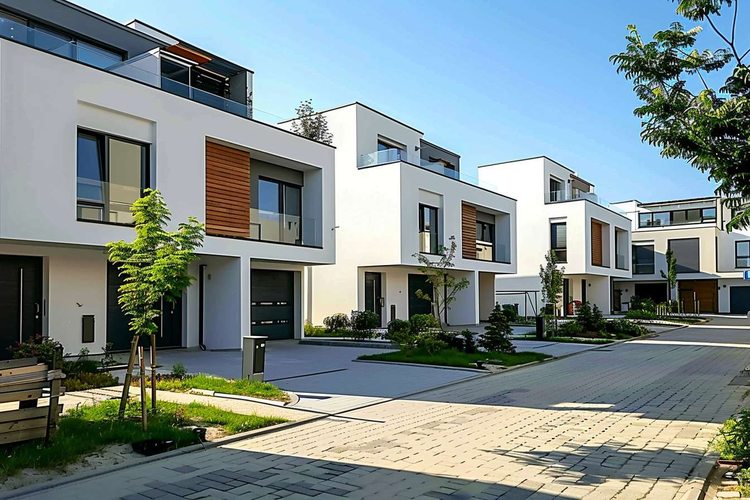What Every Homeowner Should Know About Property Value
Understanding what drives property value is essential for any homeowner, whether you’re thinking of selling, refinancing, or simply investing in your future. This article breaks down the key factors that influence your home’s worth, from location and market trends to renovations and upkeep. By gaining a clear picture of how property values are assessed, you can make smarter decisions to protect and grow your investment with confidence.

What are the primary factors that influence home value?
Several key factors contribute to a property’s value. Location is often considered the most significant, as it encompasses aspects like neighborhood quality, proximity to amenities, and school districts. The size and layout of the home, including square footage and the number of bedrooms and bathrooms, also play a crucial role. Additionally, the property’s age, condition, and any unique features or upgrades can impact its worth. Market conditions, such as supply and demand in the area, interest rates, and overall economic health, further influence home values.
How do location and neighborhood affect property pricing?
Location is paramount in real estate valuation. A property’s neighborhood can significantly impact its price, with factors such as crime rates, local schools’ quality, and proximity to employment centers all playing a role. Homes in desirable neighborhoods with low crime rates, excellent schools, and convenient access to amenities typically command higher prices. Additionally, future development plans for an area can affect property values. For instance, upcoming infrastructure improvements or new business districts can potentially increase home values in the surrounding neighborhoods.
What role do renovations and maintenance play in home value?
Renovations and regular maintenance can substantially impact a property’s value. Well-maintained homes generally fetch higher prices as they require less immediate investment from potential buyers. Strategic renovations, particularly in kitchens and bathrooms, often yield the highest return on investment. However, it’s important to note that not all improvements add equal value. Overimproving for the neighborhood or making highly personalized changes might not translate to a proportional increase in property value. Regular maintenance, such as keeping the roof in good condition, updating HVAC systems, and ensuring proper insulation, can help preserve and even increase a home’s worth over time.
How do market trends impact real estate values?
Real estate markets are dynamic and can significantly influence property values. Supply and demand play a crucial role; in areas where housing inventory is low and demand is high, property values tend to rise. Conversely, an oversupply of homes can lead to price stagnation or decline. Economic factors such as interest rates, employment rates, and overall economic growth also impact real estate values. For example, low interest rates can make homeownership more affordable, potentially driving up demand and prices. Additionally, broader market trends like shifts towards urban living or increased demand for eco-friendly homes can affect property values in specific areas or for certain types of properties.
What unique factors impact home values in the United States?
In the United States, several unique factors can influence home values. The country’s diverse geography means that natural disasters like hurricanes, floods, or wildfires can impact property values in specific regions. Zoning laws and land-use regulations, which vary by state and municipality, can affect property values by dictating how land can be used and developed. The presence of historical designations or conservation easements can also impact a property’s value. Additionally, the U.S. housing market is influenced by federal policies, such as tax incentives for homeownership or changes in lending regulations, which can have broad effects on property values nationwide.
How can homeowners estimate their property’s current value?
Homeowners have several options for estimating their property’s value. Online home value estimators, often called Automated Valuation Models (AVMs), provide quick estimates based on public data and recent sales. However, these tools can vary in accuracy. For a more precise valuation, homeowners can hire a professional appraiser or consult with a local real estate agent for a Comparative Market Analysis (CMA). These methods consider factors like recent comparable sales, property condition, and local market trends to provide a more accurate estimate.
| Valuation Method | Provider | Cost Estimation |
|---|---|---|
| Online AVM | Zillow Zestimate | Free |
| Online AVM | Redfin Estimate | Free |
| Professional Appraisal | Local Appraiser | $300 - $600 |
| Comparative Market Analysis | Local Real Estate Agent | Often free (as a service to potential clients) |
Prices, rates, or cost estimates mentioned in this article are based on the latest available information but may change over time. Independent research is advised before making financial decisions.
Understanding property value is essential for homeowners to make informed decisions about their investments. By considering factors such as location, market trends, property condition, and unique regional influences, homeowners can better navigate the complex landscape of real estate valuation. Regular maintenance, strategic improvements, and staying informed about local market conditions can help protect and potentially increase a property’s value over time. While various methods exist to estimate home value, consulting with local real estate professionals often provides the most accurate and current assessment tailored to your specific property and market.




